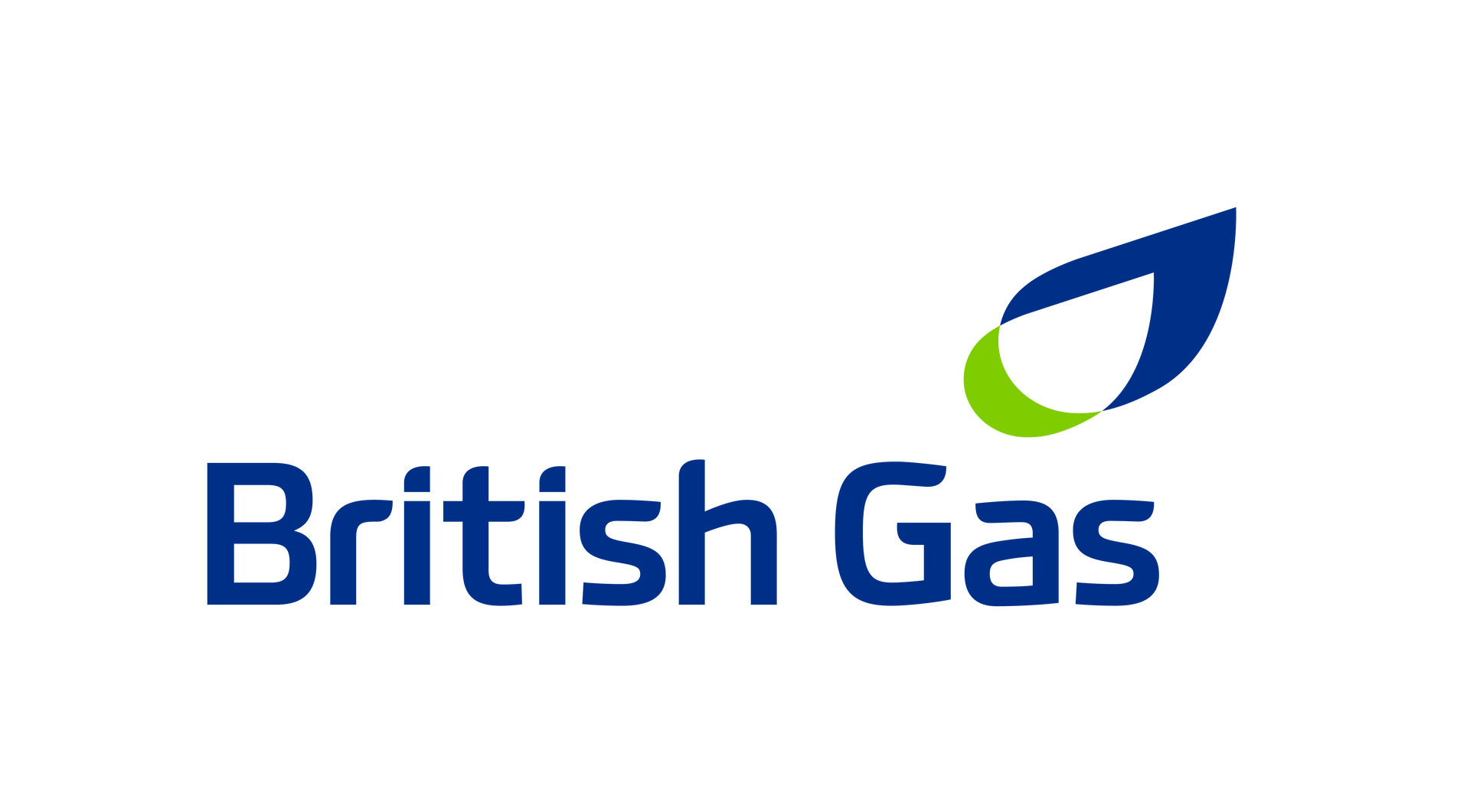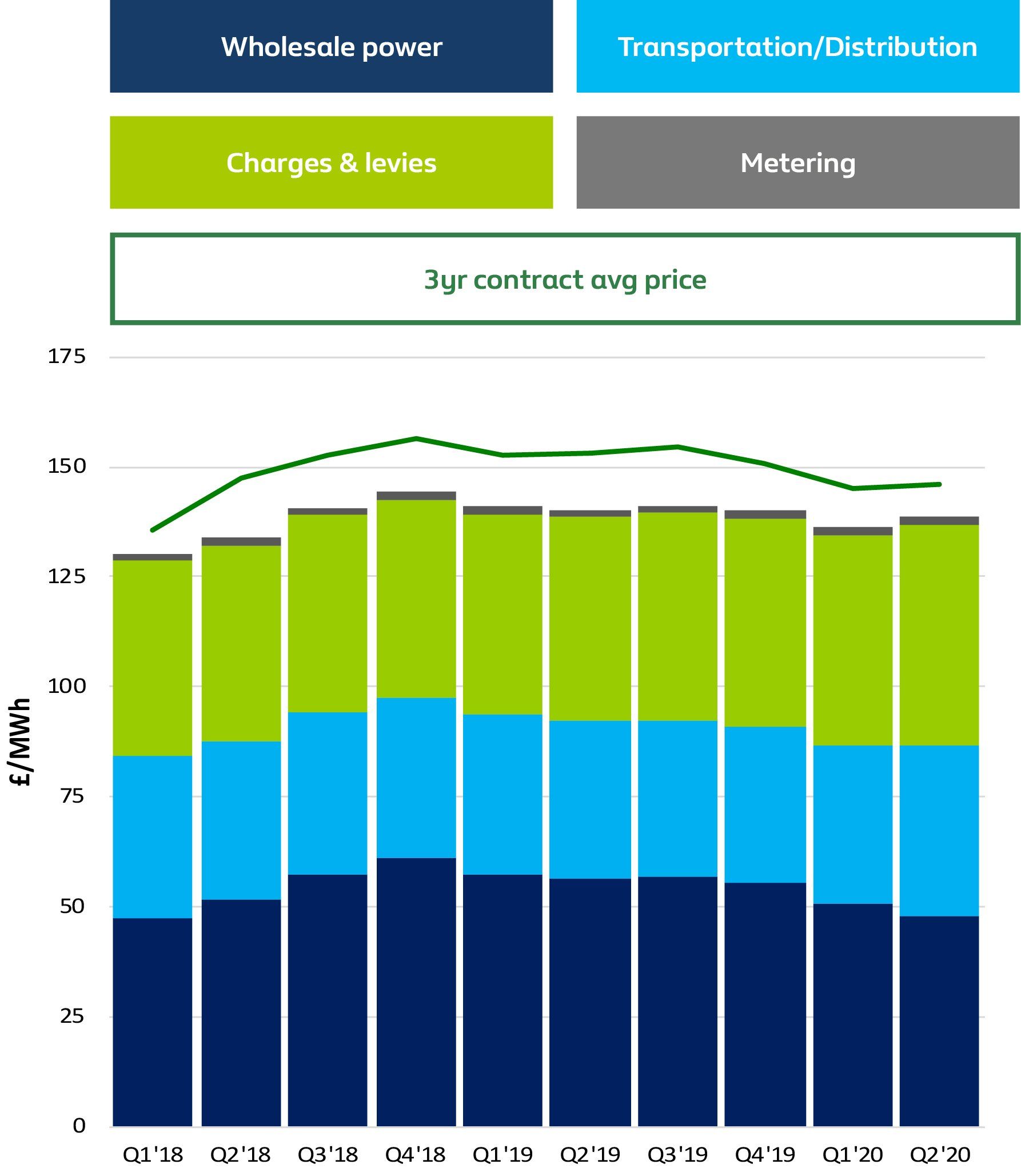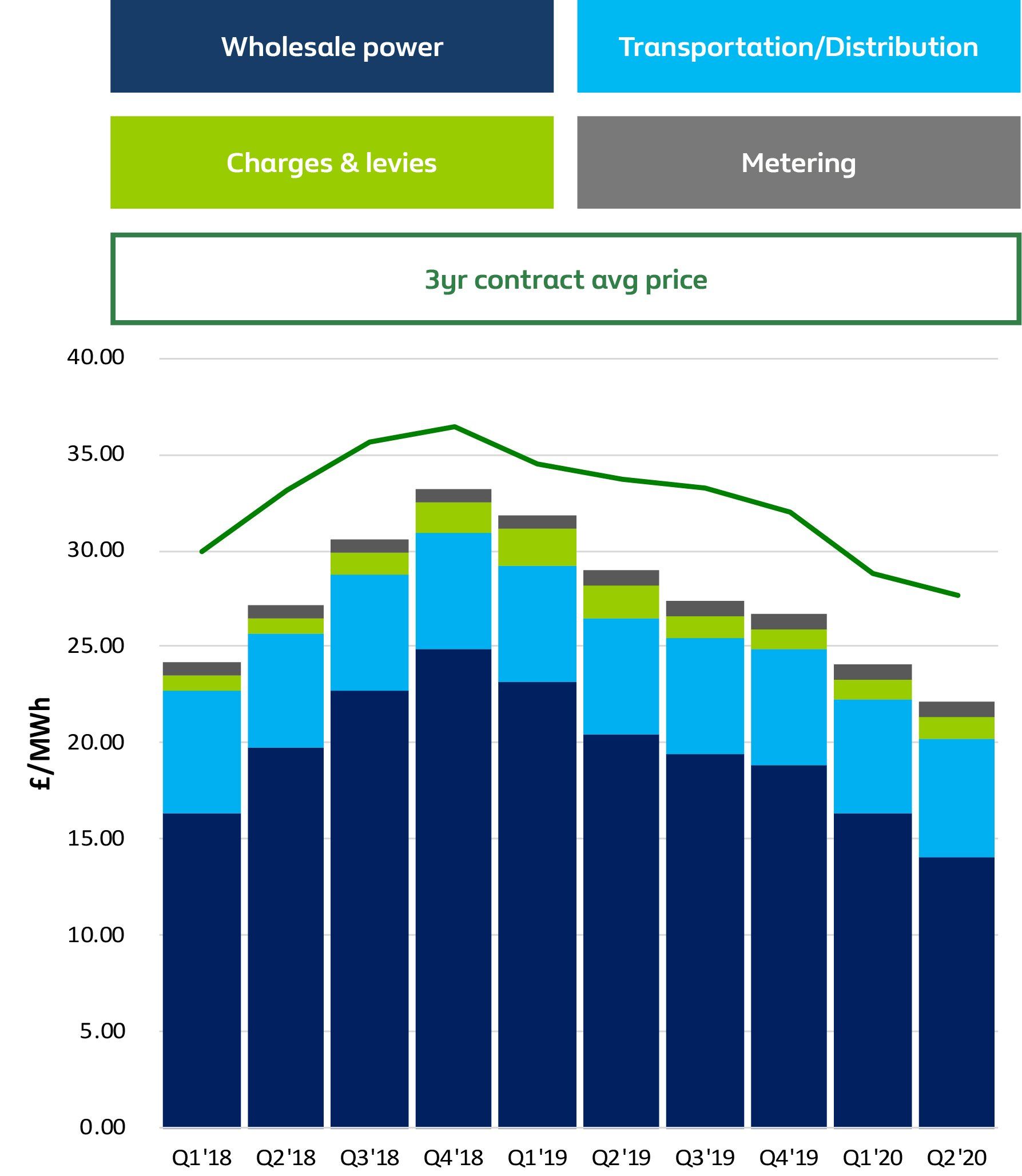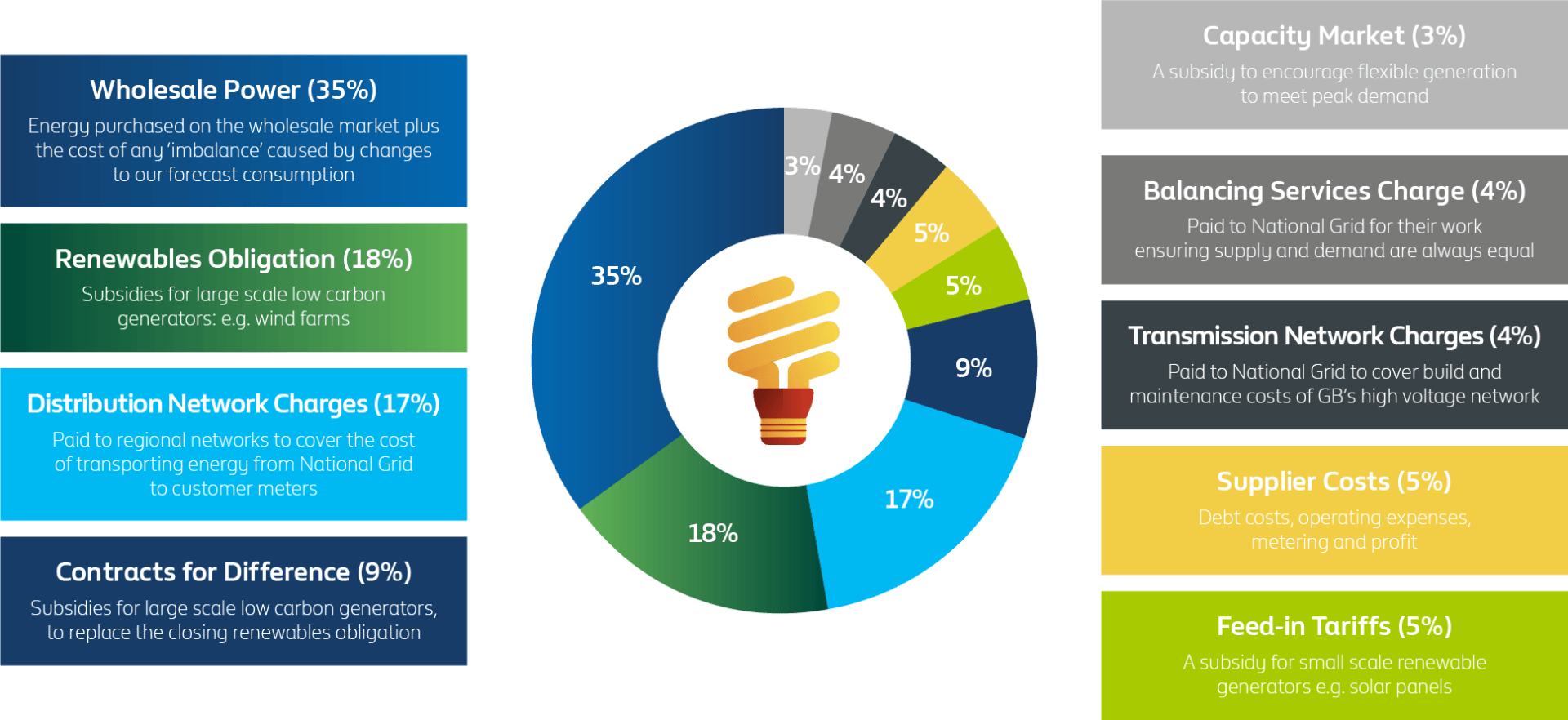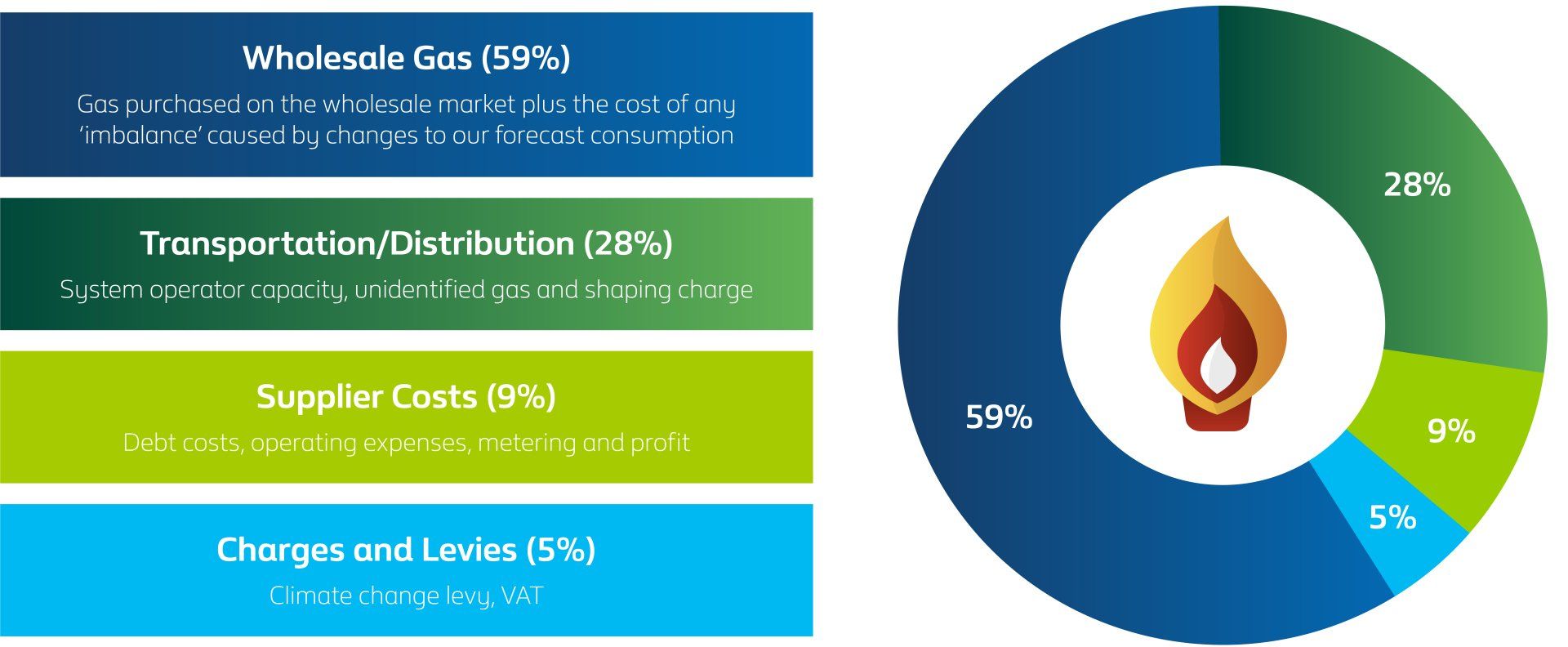Follow us
Welcome to your quarterly report
Utilising 200 years of experience to give your business insight and tips on energy efficiency, sustainability and more.
As the UK’s largest energy supplier to businesses, (1) we're committed to making sure you know exactly what you’re paying for. That’s why we’ve utilised 200 years of British Gas insights to give a deeper understanding of your energy efficiency and sustainability, so you can take the right next steps for your business.
Below you'll find some useful information about your energy costs, and what goes into the prices we charge, to keep you informed about what you are paying for, and to help you plan your future energy strategy.
Q2’ 2020 Business Energy Market insights
During the second quarter of 2020 the UK economy experienced the full impact of the coronavirus lockdown. In the energy market, the lockdown has resulted in a significant decline in energy demand and a fall in wholesale prices. These two effects combined with an increase in renewable generation has forced the Electricity System Operator (ESO), National Grid ESO, to take more actions to keep the system stable at additional cost. Since these costs are shared with industry participants based on consumption, lower demand has resulted in a smaller charging base and in turn a higher balancing charge.
With non-energy costs accounting for around 62% and 32% of businesses’ electricity and gas bills respectively, these rising costs are pushing energy prices upwards, particularly electricity prices. Gas demand has been less severely impacted than electricity and with storage at its highest levels since 2017, both wholesale and retail prices remain subdued.
Several measures have been put in place to soften the impact of this sharp rise in non-energy costs on customers’ bills. However, the combination of all the costs together means the increase will be felt by many.
As we enter into the second half of the year, there are encouraging signs that economic activity is gradually starting to recover. Higher electricity consumption is likely to stabilise some of the more volatile charges such as BSUoS (Balancing Services Use of System) and RO (Renewables Obligation).
What businesses pay for their energy
As you can see from the charts below, business energy prices for both electricity and gas have been falling since the end of last summer, reflecting a general decline in wholesale or commodity prices.
This decline in energy prices accelerated during the coronavirus lockdown. However, by the end of the quarter, electricity prices have started to rise again driven by the impact of non-energy costs (see above) as well as rising wholesale prices.
For reference, the green line shows an average market price, estimated from a sample of new business quotes provided by business energy suppliers for a three-year contract. (2)
The growing importance of non-energy costs
Whilst the cost of wholesale energy is a critical part of your overall bill, non-energy costs have grown in significance, and are rising.
Non-energy costs are payable to third parties for the operation and maintenance of the networks, and are made up of various obligations and levies set by the Government and the energy regulator, Ofgem, to support renewable energy generation.
Currently these make up 62% and 29% of your electricity and gas bills respectively, up from 59% and 27% in 2019. (3)
A more detailed view of these is provided in the two charts below.
Our fuel mix
Below, you can see the mix of fuels we use to generate electricity, as well as its environmental impact.
| Energy Source | British Gas | UK average |
|---|---|---|
| Renewables | 56% | 33% |
| Coal | 4% | 5% |
| Natural gas | 29% | 41% |
| Nuclear | 9% | 19% |
| Other fuels | 2% | 2% |
| CO2 emissions | 157 g/kWh | 208 g/kWh |
| High-level radioactive waste | 0.0006 g/kWh | 0.0013 g/kWh |
The table shows the British Gas fuel mix from 1st April 2018 to 31st March 2019.
Latest energy industry news

Wholesale energy prices have experienced unprecedented levels of volatility since the end of summer 2021, with both day ahead/spot and future contracts surging to all-time highs. In the last couple of months, prices have decreased but still remain high compared to a year ago. This period of high energy prices is expected to continue for the foreseeable future (see next section). Energy prices have surged for a number of reasons: A global increase in gas demand following the ease or end of Covid-related restrictions throughout 2021. After the pandemic, economies across the world started to recover. Asian countries like China saw their imports of Liquified Natural Gas (LNG) increase. This resulted in lower LNG shipments to the UK and Europe. On the supply side, the Covid-19 lockdowns pushed some maintenance work from 2020 into 2021 at a time when demand was recovering. In 2021, gas production hit a record low of 363TWh, 47TWh below the previous record low in 2013. Low production was the result of an extensive summer maintenance schedule which saw shutdowns at several major terminals, as well as the Forties Pipeline System which serves a significant proportion of UK gas and oil production. A lack of wind in the summer resulted in higher demand for conventional power. European gas storage in 2021 and Q1’22 remained far below previous years and it’s unclear how these are going to be replenished in the summer given the concerns around supply including the potential suspension of Russian gas flows due to sanctions. The 1,234km offshore Nord Stream 2 gas pipeline, which was designed to double the flow of gas between Russia and Germany (and by extension the rest of Europe) has been abandoned following the invasion of Ukraine. Gas storage in the UK is extremely minimal with capacity at less than 2% of the UK’s annual demand, compared with 22% for other European countries. Whilst the UK is not heavily reliant on gas coming from Russia, it sources almost half it’s gas supply from Europe. Hence, wholesale gas and power prices in the UK are now subject to knock-on-effects from the conflict in Ukraine.

Amidst rising energy costs, digitalisation, growing pressure from stakeholders and increasing regulation, organisations may struggle to define their pathway to a low-carbon future. What can you do to protect your business’ net zero plans from the challenges of volatility? Disruption and volatility are putting organisations under pressure. Digitalisation and new technology developments continue to challenge existing business models. Its increasing dependence on energy and encouraging businesses to drive change to secure competitive advantage. And as customers, employees and shareholders look to engage with companies who understand the importance of decarbonisation, pressure is mounting to prioritise sustainability.
How can British Gas help your business?
Here’s why thousands of business customers are getting even more from their energy with British Gas.
Fixed price for length of contract
We offer a wide range of tariffs, tailored energy solutions, smart metering, electronic billing, and automatic payment options.
Account Support
Our team of highly skilled energy experts will handle your contract and give you regular status updates, as well as answering any queries you may have.
7% Direct Debit discount
Paying by Direct Debit. The easiest way to pay your business energy bills is by Direct Debit. You could save up to 7% off the cost of your energy and your payments are secure with the Direct Debit Guarantee.
Renewable technologies
We can help design, install and maintain systems to support your business in generating its own renewable energy on site.
.
Energy efficiency solutions
Our sister company, Centrica Business Solutions, builds intelligent, end-to-end energy solutions to power performance, resilience and growth for our customers.
Online account management
With a British Gas business account, you can access our online account management system, enabling you to complete the following tasks online:
• Set up a Direct Debit
• Submit Change of Tenancy forms
• Complete VAT, PP11
• Submit meter reads
• View your account balances
• Pay bills
Gain the freedom to manage your energy account as and when you need to with Online account management from British Gas.
£500 to spend on services products†
As a thank you, we're offering up to £500† off service products. So, if it’s offsetting the cost of a new boiler replacement or air conditioning unit, starting a new service contract or even installing an electric vehicle charging point at your workplace, we can help. Available to all new or existing business energy customers until 31st December 2020, please call to find out more on
